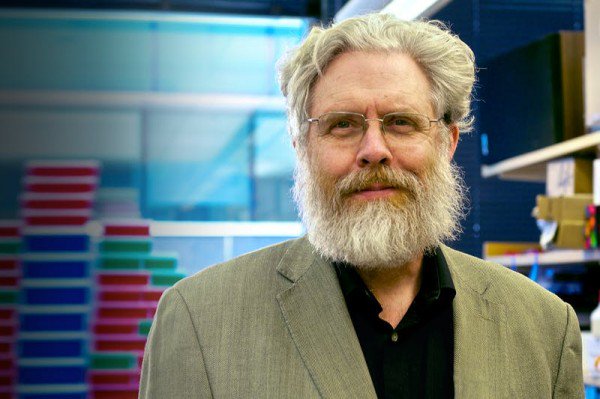
Cryptocurrency in exchange for your genetic data! Sounds a bit like a scam, but it’s the premise behind a new company founded by a leading geneticist. Nebula Genomics says it plans to sequence your genome for under $1,000, give you insights about it, secure it using a blockchain, and allow you to do whatever you want with the data.
Nebula is the brainchild of PhD student Dennis Grishin, graduate Kamal Obbad, and geneticist George Church, all from Harvard. Mirza Cifric, CEO of Veritas Genetics, which offers a genome-sequencing service for $999, is a founding advisor.
When you pay to take a DNA test—through 23andMe, Helix, or Ancestry.com, for example—the company that does the testing owns your genetic data. Nebula wants to sequence people’s entire genomes and let them own it, allowing them to earn digital money by sharing it.
In a white paper released today, Church and his colleagues reason that pharma and biotech companies need large genomic data sets to develop new drugs. Companies typically buy this data from academic institutions or genetic testing companies like 23andMe, often for millions of dollars.
Nebula says it aims to eliminate the middleman so that people can sell their genomic data straight to drug companies and other data buyers.
“The pitch to the average person is that you’re not just monetizing your genetic data,” says Obbad, one of Nebula’s cofounders. “We’re also going to provide you with insights, similar to what 23andMe and Ancestry.com do.” For example, Nebula will tell be able to tell you about your disease risks.
Obbad says biotech and pharma companies won’t actually be able to download data shared by owners, just borrow it. Data owners will remain anonymous, while buyers will have to be fully transparent about their identity. Genomic data and transaction records will be secured by a blockchain—the same technology behind cryptocurrencies like Bitcoin.
Other startups, like EncrypGen, Luna DNA, and Zenome, say they are building platforms where people can sell their genetic information online—but these services don’t offer genome sequencing. People who want to get their genomes sequenced through Nebula will pay with Nebula tokens, which will also be used by researchers and companies wanting to acquire that data. Nebula hasn’t yet determined how it will distribute tokens, or whether it will have an initial coin offering.
Obbad says Nebula’s goal is to get the price of genome sequencing below $1,000 by working with biotech and pharma companies, which will subsidize a chunk of the cost. He says people will be able to join the platform sometime within the next few months.
